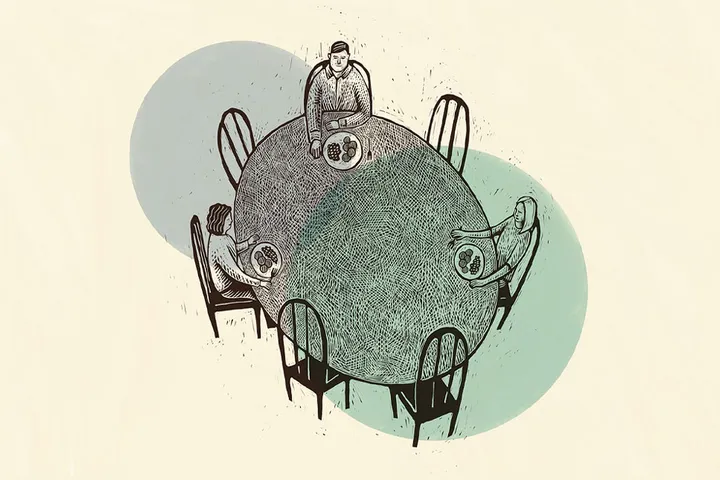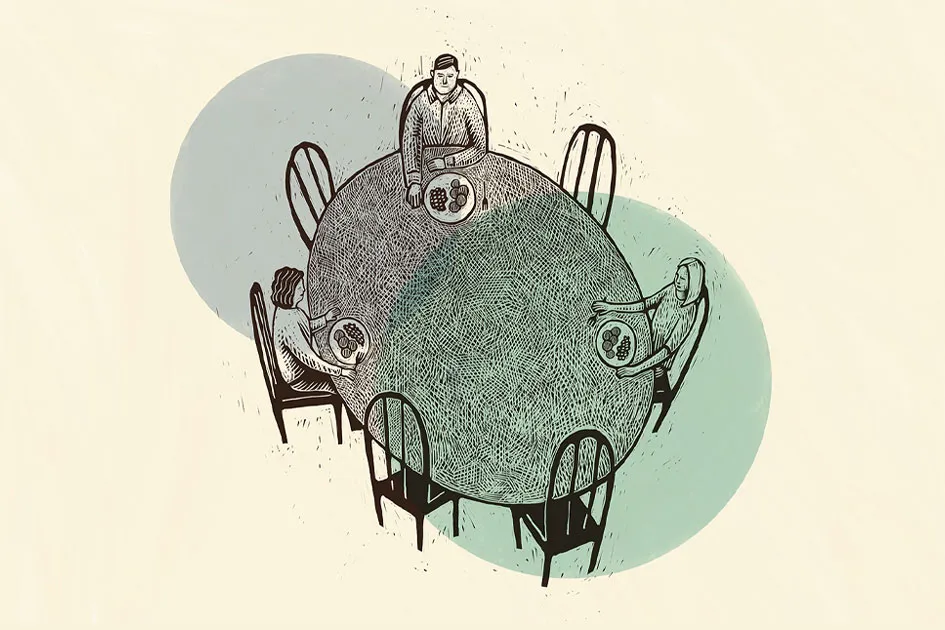If you’ve ever gone on a family vacation, traveled with coworkers, or been around a group of people for an extended period of time, you know how difficult it can be to prevent friction and stress. Because we’re imperfect beings, avoiding conflict, misunderstanding, and hostility is impossible. As much as we may want to get along, there will be times when all our efforts fail. We will disappoint, hurt, and wrong people around us—even those we love dearly. And we in turn will experience heartaches, insults, and abuse inflicted by others.
It’s important that we learn how to deal with the inevitable wrongs and hurts we suffer in life, and the remedy found throughout God’s Word is forgiveness: “Be kind to one another, tender-hearted, forgiving each other, just as God in Christ also has forgiven you” (Eph. 4:32). The admonition is clear: When we are wronged, we’re to absolve our offender—that is, we no longer hold any resentment, bitterness, or grudges against the one who caused our distress. But even with such clear guidance, it’s difficult to comply when the wound is painful or the offense grievous. However, let’s consider what’s at stake if we decide not to obey God’s command.
An unforgiving spirit affects us personally. Unforgiveness is like a poison that spreads throughout our body. We can’t hold onto bitterness toward one person and expect it to harm only one relationship. Like a drop of ink in a glass of water, it eventually stains our entire being.
It affects us internally. Listen to what Jesus said in a story about a man who was forgiven much but refused to forgive someone else: “And his lord, moved with anger, handed him over to the torturers until he should repay all that was owed him. My heavenly Father will also do the same to you, if each of you does not forgive his brother from your heart” (Matt. 18:34-35). Considering how much God has forgiven us, we have no right to hold anything against others. In all our attempts to “get even,” we end up being tortured by our own bitterness.
It affects us spiritually. In addition to causing emotional torment, unforgiveness stunts our spiritual growth, hinders our service to God, grieves the Holy Spirit within us, robs us of His fruit, and gives the devil an opportunity to wreak havoc in our life (Eph. 4:26-32). It’s just not worth the cost.
It affects us physically. Resentment invariably changes our countenance and damages our physical and mental health. Godly counselors can often trace depression and emotional problems back to unaddressed bitterness. If we don’t deal with it, we’ll end up being hurt twice—first by the offense and again by ourselves as we drink the poison of unforgiveness.
 Photograph by Charles F. Stanley
Photograph by Charles F. Stanley
Our unforgiveness affects our relationships with others. Bitterness doesn’t stop with us. Hebrews 12:15 warns, “See to it that no one comes short of the grace of God; that no root of bitterness springing up causes trouble, and by it many be defiled.” When we get others to join us in our grievances, our attitude damages them. We actually cause them to stumble in their walk with Christ by falling into sin with us.
An unforgiving spirit damages our relationship with God. Unforgiveness is completely contrary to the message of the cross. Christ laid down His life so we could receive forgiveness, and the sum of our sins against God far outweighs what anyone else could ever do to us. It’s utter pride to think that someone’s offense against us is unforgivable while our wrongs against God deserve mercy.
Jesus made this very clear in His instructions regarding prayer: “And forgive us our debts, as we also have forgiven our debtors … For if you forgive others for their transgressions, your heavenly Father will also forgive you. But if you do not forgive others, then your Father will not forgive your transgressions” (Matt. 6:12; Matt. 6:14-15).
When a person trusts in Christ as Savior, all of his or her sins are forgiven. And from then on, the believer is to walk in obedience before God. That’s not to say sin is exclusively a thing of the past; rather, when we do wrong, we are to confess and receive cleansing (1 John 1:9). But if we let the sin of unforgiveness remain, we can expect our heavenly Father to discipline us (Heb. 12:7-11).
It’s time to let unforgiveness go. Holding on to a grudge isn’t worth all these awful consequences. Instead, deal with the resentment, and come out of the prison house into freedom.
Confess it as sin. So often we want to think of an unforgiving spirit as a noble fight for justice: We were wronged; the offender must pay. Yet we would never want God to take that approach with us. His Word says, “Let all bitterness and wrath and anger and clamor and slander be put away from you, along with all malice” (Eph. 4:31). Although what was done to us was a sin, we must acknowledge that our unforgiveness is a sin as well. When the hurt is deep, the process may be lengthy.
Repent of it. You don’t have to “get even.” Surrender that need into God’s hands, and ask Him to root it out of your heart. This initial step is important, but you must also realize that when the hurt is deep, the process may be lengthy. However, you can always give your pain to God, thank Him that He’s forgiven you for all your transgressions, and ask Him to enable you to do the same for the other person.
Pray for the offender. This is one of the things I’ve found most helpful in changing my attitude toward those who have hurt me. It’s also something Christ commands us to do: “Bless those who curse you, pray for those who mistreat you” (Luke 6:28). It’s amazing how God softens our heart when we turn our pain into prayer.
Love and do good to the wrongdoer. Once again Jesus says, “Love your enemies, do good to those who hate you,” which is basically the Golden Rule: “Treat others the same way you want them to treat you” (Luke 6:27; Luke 6:31). In our own strength, we could never bring this about, but as believers, we have the power of the Holy Spirit, who enables us to do whatever God has commanded us. Showing kindness to the one who wronged us may be the path the Lord wants to use for reconciliation. However, whether or not that occurs, it’s still a blessing for us to be able to release our bitterness and replace it with kindness.
It has been said that we are never more like Christ than when we forgive others. The hurts and offenses we suffer should be seen, not as causes for indignation and resentment but as opportunities to trust God and let Him transform us. If we surrender our hurts to the Lord, knowing He has holy purposes for them, we’ll drink of His peace and joy instead of the poison of bitterness.





